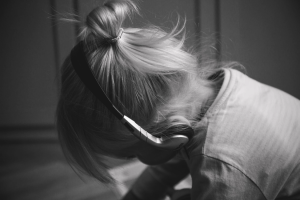Photo courtesy of StockSnap.io
Raising a child with Attention Deficit Hyperactivity Disorder (ADHD) brings a unique set of gifts, rewards, and challenges. As any parent of a child with ADHD already knows, there will be good days and bad. You will struggle with difficult decisions, such as whether or not to medicate your child. Throughout your parenthood journey, you will also find alternative therapies that work remarkably well for your child’s unique needs.
Take music therapy, for example. Also referred to as “auditory stimulation,” music therapy offers several benefits to children who have ADHD:
- Music provides structure. It includes a definite beginning, middle, and end. This soothes the ADHD mind, teaching children to focus, anticipate, and react.
- Music increases dopamine levels. ADHD brains are typically low on this neurotransmitter, which regulates cognitive processes including working memory, attention, and motivation. Stimulating the brain through music can improve these functions over time.
- Music improves social skills. In addition to extensively activating the brain, music teaches children to pay attention to those around them. While collaborating with others in a choir or musical ensemble, children of all ages can learn to notice social clues, anticipate upcoming changes, and listen to what is happening around them.
Some experts might argue that the healing potential of music should come as no surprise. In his book, Musicophilia, the late author, Oliver Sacks, M.D., recounted how music has profoundly helped his patients over the years. As both a musician and a neurologist himself, Sacks explained that the brain doesn’t have one single musical “center.” Instead, we analyze music using 20 to 30 separate networks spread across all regions of the brain. Some of these networks are responsible for processing the pitch of a song, for instance, while others might process the song’s melody.
It’s also important to note that music is helpful for a plethora of conditions besides ADHD. In his own work with his patients, Sacks often noticed the benefits of music therapy for a variety of conditions affecting the human brain. These conditions ranged from Alzheimer’s to Parkinson’s, from autism to Tourette syndrome – just to name a few. Given that music therapy has the power to help the human brain in such deeply healing ways, it certainly doesn’t hurt to give it a try if you have a child living with ADHD.
Some ways to incorporate music into your everyday life might include:
- Turn off the television at a certain time each evening and listen to music together as a family.
- Use rhythm to your advantage. Play upbeat music in the mornings to help your family wake up and build energy. At night, switch to slow, soothing music to help your child get ready for bed.
- Play the right music. Just like rhythm, the style or genre of music is important. Certain types of music work best for children with ADHD. For instance, classical music is good for concentration while pop music can help relieve stress. Try these free playlists, which were handpicked for kids with ADHD.
- Make it collaborative. Use your child’s favorite songs, artists and styles to your advantage. Need to grab her attention? Play a Katy Perry song and sing along. Want to teach him to focus? Create a song together using a hang (handpan) drum.
- Buy an instrument. Children with ADHD enjoy being able to move while playing instruments. Instead of piano lessons, you could purchase your child a saxophone, clarinet or trumpet as these instruments provide more freedom for your child to move and groove. Before purchasing an instrument, it’s helpful to do some research. For instance, check a clarinet buying guide prior to investing in a clarinet. This will ensure you get a great deal on the best instrument for your child.
At the end of the day, all children with ADHD are unique and no single method will succeed with all children. If your child focuses better in silence, that’s okay. That being said, music therapy has indeed shown promise for many children. It is up to you to do your research, be willing to experiment, and make an informed decision about what works best for the needs of your family and your child.
Charles created HealingSounds.info. He believes in the power of music and sound as a healing tool.



Please note: I reserve the right to delete comments that are offensive or off-topic.